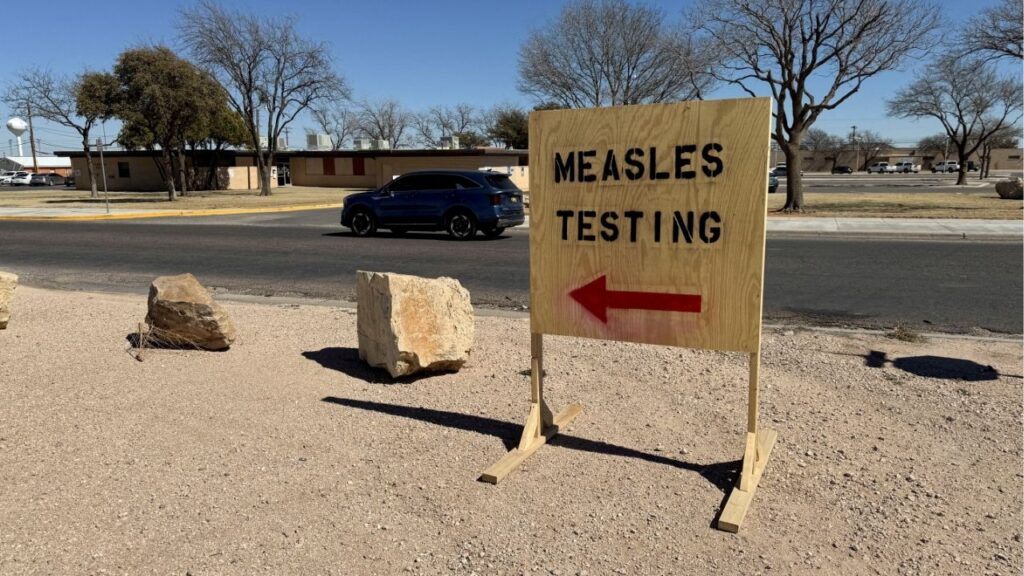New legislation in California aims to deter water scofflaws with hefty fines, addressing enforcement gaps exposed by recent drought violations. (CalMatters/Martin do Nascimento)

- Lawmakers approve 20-fold increase in daily fines for violating water curtailment orders, up to $10,000 per day.
- Bill sails through with bipartisan support, marking rare agreement on California's complex water rights system.
- Water experts celebrate cooperation but say more action needed to strengthen protection of state's water resources.
Share
|
Getting your Trinity Audio player ready...
|
California lawmakers last week approved a massive increase in fines for water scofflaws after ranchers intentionally defied state orders and pumped water from the drought-plagued Shasta River for eight days.

Rachel Becker
CalMatters
Two years ago, state officials imposed the maximum fine allowed under law — $4,000, or roughly $50 per rancher, causing outrage among tribes and conservationists. The river provides vital habitat for salmon, and California was experiencing its driest three-year stretch on record.
The new legislation, which is now awaiting Gov. Gavin Newsom’s signature, would double daily fines for water rights holders who commit minor violations. Those violating curtailment orders could face fines of up to $10,000 per day — a 20-fold increase — plus $2,500 for every acre-foot of water taken. Had it been in place at the time, the Siskiyou County ranchers could have faced total fines exceeding $1.2 million.
As climate change intensifies droughts, “people are going to be, unfortunately, put in situations where they might feel that they need to take water, regardless of what the curtailment order is,” said Analise Rivero of California Trout, a conservation group and sponsor of the bill. Now, she said, “they will think twice.”
The legislation sailed through its final votes with little controversy, which is notable given that the state’s complex, gold-rush era system governing water rights often pits farmers and other water users against environmentalists.
State Standoff With Ranchers Inspired Stiffer Penalties
Assembly Bill 460 was introduced in 2023 after CalMatters reported extensively on the standoff with Siskiyou County ranchers and the penalties imposed by the State Water Resources Control Board. It cleared the Senate in a 38 to 2 vote with no debate, before heading back to the Assembly, which approved the amendments with a final vote tally of 65 to 5.
Related Story: Ag Summit at Fresno State Will Explore Water Use Collaboration in California
The goal is “to make sure that we’re all playing by the rules — that we don’t have a tragedy of the commons, where some are taking more and others have none,” Assemblymember Rebecca Bauer-Kahan, a Democrat from San Ramon who authored the bill, said at a June hearing.
California’s powerful farm organization did not oppose the legislation after Bauer-Kahan removed provisions that would have allowed state officials to intervene more swiftly to halt “irreparable injury” to rivers, ecosystems and other water users. Opponents said those expanded powers could ensnare law-abiding water users.
With the changes, all the opposition from growers, irrigation districts, major urban water agencies and even San Francisco Mayor London Breed fell away.
The final version is what the bill should have been all along, said Alexandra Biering, the California Farm Bureau’s senior policy advocate: a strong deterrent to taking water illegally. “We have no problem with increased penalties,” she said.
The goal is “to make sure that we’re all playing by the rules — that we don’t have a tragedy of the commons, where some are taking more and others have none.”
ASSEMBLYMEMBER REBECCA BAUER-KAHAN
California water watchers and regulators have long bemoaned the state’s limited powers to police its water rights system, which establishes priority among users of finite supply of water from rivers and streams.
Related Story: Grand Canyon Visitors Move to Hotels Outside the Park After Unprecedented ...
Difficult to Monitor Illegal Diversions: State
State officials say a lack of resources to monitor streams for illegal diversions and unclear information about who has rights to the water complicate enforcement.
“Knowing who’s allowed to take what and how much, and trying to administer that, can be very difficult,” said Yvonne West, director of the water board’s office of enforcement. “It’s time consuming. It is usually very investigative and labor intensive, and there are some ambiguities in the law that we can spend a lot of time arguing over.”
The bill aims to address some of the enforcement gaps laid bare in the Shasta Valley two years ago. With thirsty cattle, drying stock ponds and bills from buying water and hay mounting, a rural water association serving about 80 farmers and ranchers bucked state curtailment orders meant to protect flows in the Shasta River.
“We said, ‘To hell with it,'” Jim Scala, board president of the Shasta River Water Association at the time, told CalMatters in August 2022. “We’re starting the pumps.”
Flows in the river dropped for about a week — plummeting by nearly two-thirds in a single day, which wildlife officials and Tribes feared would jeopardize salmon in the Shasta River and the bigger Klamath River that it feeds. The water board warned the ranchers to stop the diversions, then imposed the maximum fine of $500 per day for eight days, or $4,000 divided among about 80 ranchers.
For tribes and conservationists, the fine didn’t fit the crime. “We’re trying to protect the culture and the livelihood of people downstream,” Kenneth Brink, vice chairman of the Karuk Tribal Council, said at the June Senate hearing. “The salmon is a big part of our culture and our ceremonies, it’s not just a fish that swims up the river.”
Only if the violation had continued after a finalized cease and desist order — which requires a 20-day waiting period and the opportunity for a hearing — could the board have raised the fines to $10,000 a day. By then, the pumps had long been turned off.
Ranchers Oppose Restrictions on Pumping Groundwater
One of the ranchers told CalMatters at the time that, weighing the threat to his cattle and the expenses of ranching without enough water, violating the drought order “was the cheapest way I could have got by … When you’re to a point where you have no other choice, you do what you have to do.”
In California’s far north, some farmers and ranchers relying on the Shasta River and the neighboring Scott River for irrigating crops still face water curtailments under emergency measures approved in December. The rules are aimed at protecting their imperiled fish, such as salmon.
Those restrictions on water pumping are a bigger concern than the increased fines, said Siskiyou County Farm Bureau President Ryan Walker. “Whether it’s $500 or $10,000, it’s the underlying curtailment that’s grossly unfair. The penalty is simply something that goes along with it,” Walker said.
The growers and ranchers need the river’s water for irrigation of crops during a critical time in the season, he said. “It really could have made the difference between a profitable and nonprofitable year.”
Related Story: More Than a Dozen Proposed New CA Water Laws Race to Capitol Finish Line
The bill represents the last of a trio of bills that emerged after the most recent drought tackling California’s water priority system One clarifying the state’s authority to investigate longstanding water rights claims was approved, while another, which would have expanded the state’s powers to restrict pumping from rivers and streams, stalled.
California’s water watchers are celebrating the cooperation that smoothed the passage of Bauer-Kahan’s bill. But they say more needs to be done to bolster policing of the state’s most precious resource.
“History has shown that the board’s current tools are not sufficient,” said Jennifer Harder, a professor at the University of the Pacific’s McGeorge School of Law. “But I’m very encouraged by the water users and the environmental interests coming together and hope that they can build on that relationship in future.”
About the Author
Rachel Becker is a journalist reporting on California’s complex water challenges and water policy issues for CalMatters. She’s covered drought, water standoffs, groundwater depletion, water quality and the world’s biggest dam removal.
About CalMatters
CalMatters is a nonprofit, nonpartisan newsroom committed to explaining California policy and politics.



















